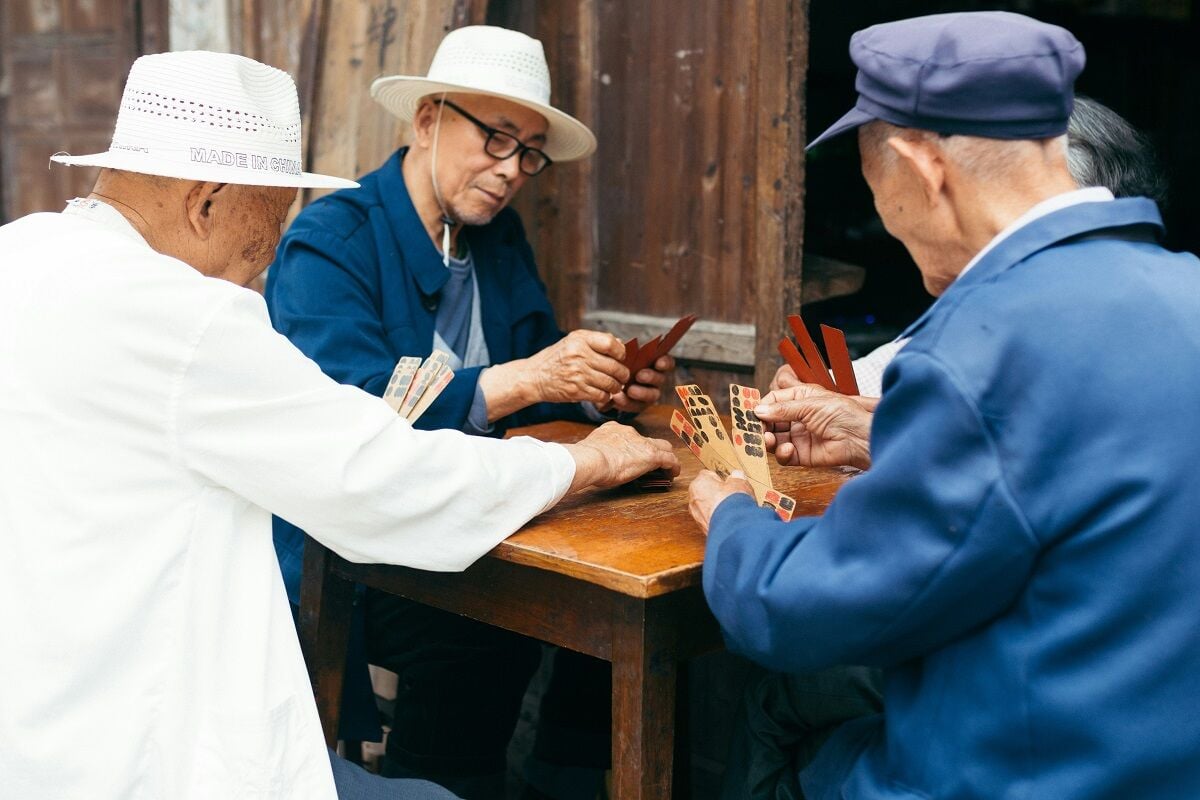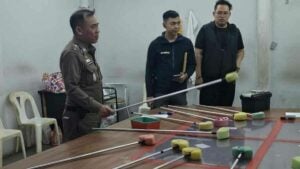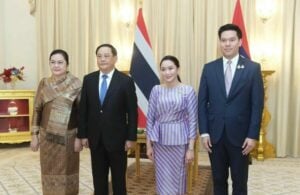Good habits for success in your life in Thailand

In the bustling world of business, the spotlight often lands on hard metrics such as costs, quality, and financial results. But is that the whole picture? Peel back the layers, and you’ll find a world where people skills and cultural nuances play a pivotal role in success.
In Thailand, the workplace culture has traditionally rewarded those who excel in these hard metrics. However, it’s time to reevaluate this approach. A strong foundation based on people skills is essential for sustained business performance.
Essential habits for success in Thailand
Having a clear understanding of local cultures and exhibiting respect creates a strong foundation for success in any situation. In Thailand, embracing these aspects often goes hand in hand with understanding cultural nuances and emphasising respect for hierarchy.
Understanding cultural nuances
Incorporate good habits into your lifestyle starting with understanding Thailand’s cultural nuances. Thai culture values both direct and indirect communication based on the situation. A simple word could mean a compliment and can be misconstrued if you’re an outsider. Take note of how feedback is perceived; this can impact companies positively or negatively. For instance, while giving constructive criticism is necessary for improvement, it needs to be delivered in a culturally sensitive manner. An environment that welcomes open criticism is important; however, it must be balanced. The golden rule is: to establish trust, appreciate cultural sensitivities and always respect Thai norms in your interactions.
Emphasising respect and hierarchy
Emphasising respect for older people and hierarchy forms the basis of interactions in Thai culture. However, businesses in Thailand are reassessing the traditional practice of setting salaries according to seniority. The growing consensus portrays a shift in rewarding people not just based on their age or seniority, but on their actual worth, much similar to how star players in a sports team are rewarded irrespective of age. This evolved approach gives all employees, at all levels, a fair incentive to perform better each day. As a result, a performance-driven culture, rather than a seniority-based one, can enhance the value a company delivers.
An optimal understanding of these aspects will not only help you navigate your path to success in Thailand but also enrich your everyday experiences. Although hard results such as costs and financial results are critical in business, embracing people-oriented skills and paying attention to the human side sustains business performance over the long run. Equipping yourself with these essential habits is a decisive step towards success in Thailand.
Building effective communication skills

You’ll stand a better chance to excel in your personal and professional life in Thailand by focusing on two crucial areas: polite and indirect communication and understanding body language and non-verbal cues.
Mastering polite and indirect communication
Immerse yourself in the beauty of polite and indirect communication, a key facet of Thai culture. Dialogues form an essential part of your everyday life, and it’s vital to remember the influence of cultural norms on such interactions. Merge this understanding with the habit of using language-learning apps and regularly engaging in meaningful conversations to refine your English communication skills. Give special importance to active listening. It’ll not only enhance your speaking abilities but also improve your listening comprehension, providing an added benefit for your IELTS speaking and listening practice. Importantly, remember that feedback, even if it sounds intrusive or personal, often originates from a place of goodwill and care.
Decoding body language and non-verbal cues
Apart from verbal communication, understanding non-verbal cues and body language acts as a silent but strong key to unlocking meaningful connections with locals. Non-verbal cues can often convey unspoken rules or express sentiments that words might not be able to capture, making it an integral part of good habits in your lifestyle. Encourage a consistent focus on such cues, as it helps in navigating both professional and personal situations more effectively. Future leaders find this skill critical as it helps in receiving feedback from all levels. As with verbal communication, practice makes perfect. Regularly engage yourself in culturally diverse scenarios and observe the non-verbal cues exhibited by others. It’ll give you insights into normally unseen aspects of Thai culture while integrating you more tightly into the Thai lifestyle.
Adopting these habits can significantly improve the quality of your life in Thailand, from enhancing your English communication skills to helping you understand and appreciate the cultural nuances better.
Prioritising work-life balance

Integration of good habits into your lifestyle, particularly in regards to work-life balance, could pave the way for success in Thailand. Comprehending and adopting the various aspects of Thai work culture and values, alongside effective time and stress management, can usher in a harmonious balance between your career and personal life.
Incorporating Thai work culture and values
Work culture in Thailand is deeply entrenched in collectivism, looping in essential group interests over individual needs. Shared responsibilities, cooperation, and collaboration are highly valued aspects. Thus, successful integration into the Thai professional scene calls for a disposition that prioritises team well-being and bestows equal importance on shared success.
Non-monetary forms of recognition hold significant weight in Thai work culture. Organisations are observed to create positive work atmospheres by acknowledging outstanding performance, offering verbal praise, and presenting certificates of appreciation or symbolic tokens of recognition. These forms of recognition not only underline your value to the organisation but also boost your sense of accomplishment in your role.
Managing time and stress effectively
Succeeding in Thailand also depends on your ability to effectively manage stress and time. While it’s essential to strive for structural deadlines, the Thai practice, ‘mpen rai’, which translates to ‘no worries’ or ‘never mind’, encourages a relaxed attitude to time and champions stress mitigation.
Demonstrating adequate sensitivity towards the Thai concept of time can make you more at ease with the local work culture. Ensuring tasks are completed within reasonable frames rather than over-emphasising strict deadlines will significantly contribute to a stress-free work environment.
Embrace the Thai culture’s organic approach to work-life balance, and focus on developing a comfort level with the local time culture. Doing so will aid in effectively managing your workload and stress level, thereby optimising your success in Thailand.
Developing a positive mental attitude

Pivotal to the pursuit of success in life within or beyond the Thai business environment, cultivating a positive mental attitude requires consistent effort and determination. This section will guide you through some crucial steps to build resilience and adapt the widely appreciated ‘M’pen Rai’ philosophy into your lifestyle.
Maintaining positivity and resilience
Despite the challenges and pressures prevalent in the workplace, retaining a positive mindset can significantly impact your performance and overall quality of life. Good habits in your lifestyle might incorporate regular mental exercises such as affirming positive thoughts daily and replacing negative thought patterns with productive ones. Notably, resilience, the ability to bounce back from setbacks, serves as a potent tool for progressing in your career. Encourage constructive criticism, accept failures as learning opportunities, and remind yourself of your potential to achieve greatness. Remember, your mental strength is the beacon that guides you through turbulent times.
Embracing the “M’pen Rai” philosophy
The Thai phrase “M’pen Rai” translates to “it’s okay” or “never mind”, representing a cultural ethos of accepting situations as they are and responding with a relaxed, c’est la vie attitude. In high-pressure situations at work, remind yourself, M’pen Rai! It’s a way to let go of stress and accept things as they are. Embrace this philosophy to reduce tension in your work environment and improve interactions with your colleagues.
The key to embodying this philosophy lies in understanding that not all things are within your control. Let go of the need to constantly manage every detail and learn to be okay with uncertainty. Adopting this mindset can bring serenity into your work life, increasing your ability to focus on what truly matters.
Incorporating simple exercises and desk stretches into your daily routine can significantly boost your overall well-being. These activities help to alleviate tension, improve circulation, and enhance your focus and productivity. By taking a few moments throughout the day to perform these exercises, you can counteract the negative effects of prolonged sitting, reduce stress, and promote a healthier, more balanced lifestyle.

































